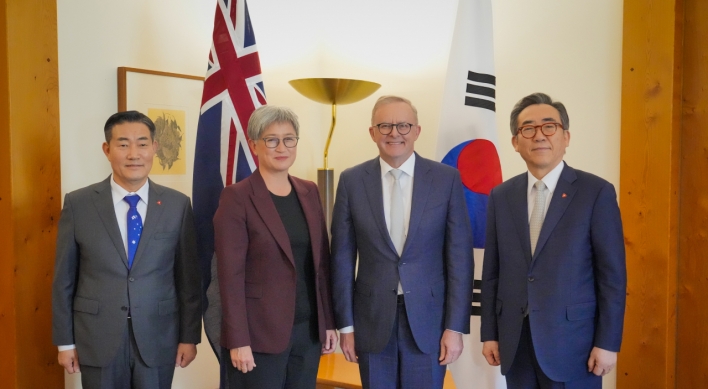Yongin determined to take lead in environment, gender issues
By KH디지털2Published : Jan. 21, 2016 - 17:15
In 1996, Yongin was largely a farming region surrounded by mountains. Now, the city has established itself as one of the fastest-growing cities in South Korea, with a population of nearly 1 million.
It’s home to Everland and Caribbean Bay, the nation’s most popular amusement and water parks, 10 university campuses and some of the most significant museums and galleries in the country -- including the Ho-Am Art Museum and the Nam June Paik Art Center.
It’s home to Everland and Caribbean Bay, the nation’s most popular amusement and water parks, 10 university campuses and some of the most significant museums and galleries in the country -- including the Ho-Am Art Museum and the Nam June Paik Art Center.

Celebrating its 20th anniversary this year, the city is more determined than ever to achieve more. It aims to be an environmentally friendly, gender-conscious city that ensures the public safety of all citizens.
In its effort to boost its population and protect women and children, Yongin is also branding itself as a “taegyo” -- which translates to “parental, prenatal education” -- city that offers a variety of support programs for pregnant women, including educational classes, a special hiking trail for soon-to-be mothers and concerts.
Last year, the city garnered 42 awards from the central government and the municipal government of Gyeonggi Province for a variety of achievements in different areas.
The city was honored by the Ministry of Public and Security as the safest city to live in South Korea last year. The Gyeonggi Province government awarded Yongin for implementing the best housing, construction policies and deregulation measures in the province.
The Ministry of Gender Equality and Family named the city as one of the most gender-conscious cities in the country for Yongin’s variety of gender-equality programs, including parenting classes for young fathers, taegyo classes and promotion of the importance of work-life balance for all working parents. The city was also given awards from Cheong Wa Dae and the Ministry of Environment for its efficient control of greenhouse gas emissions as well as other measures to protect the environment.

This year, the city has allocated 1.85 trillion won ($1.52 billion) to improve its education system, strengthen its welfare and culture programs and invest in new businesses and studies for biopharmaceutical and environmental studies in hopes to create new jobs for citizens.
Yongin aims to attract 1,000 firms and create 60,000 more jobs by 2018.
The city plans to establish a total of 20 industrial complexes -- in the fields of materials science and engineering, environmental science and life science -- in its Giheung, Suji and Cheoin-gu districts.

The city in particular increased its budget for education measures and programs by 16 percent from the year before. By investing 40.7 billion won, the city will focus on strengthening its High School Equalization Policy, an egalitarian equal-opportunity for high school education, first introduced in the city last year. It also plans to launch free lunch programs for schoolchildren, as well as to serve the region’s highest-quality agricultural products for school meals.
The city government predicts that its population will exceed 1 million by the end of 2016. A special task force has been established to come up with measures to improve the administrative system and demographic policies.

Yongin also aims to be a city with a strong welfare system, paying special attention to women and children. The city government plans to come up with additional support programs for working mothers, as well as female marriage migrants and their children. It plans to introduce more programs for the disabled and the financially vulnerable as well.
In terms of safety measures, the city plans to focus on disaster prevention, public transport safety and fire prevention.
By Claire Lee and Park Joung-kyu (dyc@heraldcorp.com)





![[Herald Interview] Mom’s Touch seeks to replicate success in Japan](http://res.heraldm.com/phpwas/restmb_idxmake.php?idx=644&simg=/content/image/2024/04/29/20240429050568_0.jpg&u=)




![[News Focus] Lee tells Yoon that he has governed without political dialogue](http://res.heraldm.com/phpwas/restmb_idxmake.php?idx=644&simg=/content/image/2024/04/29/20240429050696_0.jpg&u=20240429210658)







![[Today’s K-pop] Seventeen sets sales record with best-of album](http://res.heraldm.com/phpwas/restmb_idxmake.php?idx=642&simg=/content/image/2024/04/30/20240430050818_0.jpg&u=)